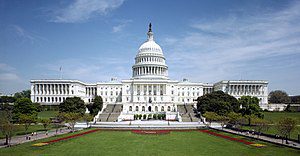Why Medicare Does Not Cover Hearing Aids

Medicare is a federal health insurance program for people 65 years of age and older. Younger people with certain disabilities and those with end-stage kidney disease also qualify.
Medicare falls under Title XVIII of the Social Security Act. Although it has undergone some changes since it was signed into action in 1965, the Original Medicare consists of two parts: Part A provides Hospital Insurance. Part B is for medical Insurance.
As Medicare was designed to help older people, one expects that hearing aids would have been included in the coverage of Medicare Part B. After all, as people age, they are increasingly affected by hearing loss, which has a negative impact on quality of live and on health in general. And so, the question is asked over and over why Medicare does NOT cover hearing aids.
Amend Title XVIII of the Social Security Act
Hearing aids and hearing tests for fitting them were not included in Title XVIII of the Social Security Act, which is why these services have never been included in Medicare coverage – and they are not to this day. It will take legislative action to get this changed. Title XVIII must be amended first!
And this has certainly been tried! Kudos to those politicians who have introduced multiple Bills into the House of Representatives in Washington, DC for the purpose of getting Medicare coverage for hearing aids. But, up until this writing, nothing has ever come of them. Why is that?
What do our Representatives know and how can they help?
Below are the links for two such Bills that have been introduced to the current 118th Congress:
https://www.congress.gov/bill/118th-congress/house-bill/244
https://www.congress.gov/bill/118th-congress/house-bill/8064/history
What do our elected officials know about these Bills and their status? Do they support them? How can they help move the Bills forward? Can they contact legislators who are involved with the Bills on our behalf? Or do they know to whom we can write in order to get some traction on the issue?
These are all relevant concerns and questions that can be raised with our Representatives during Town Halls, election campaign stops or even private meetings.
How can we help?
We must speak up and support those who support us. If we are not satisfied with the current situation then we must say so. it is up to the hearing-loss community to make the case for equitable access to improved hearing and communication. These are vital elements for our health, continued productivity, and quality of life. One last thought: Remember that the squeaky wheel gets the grease!